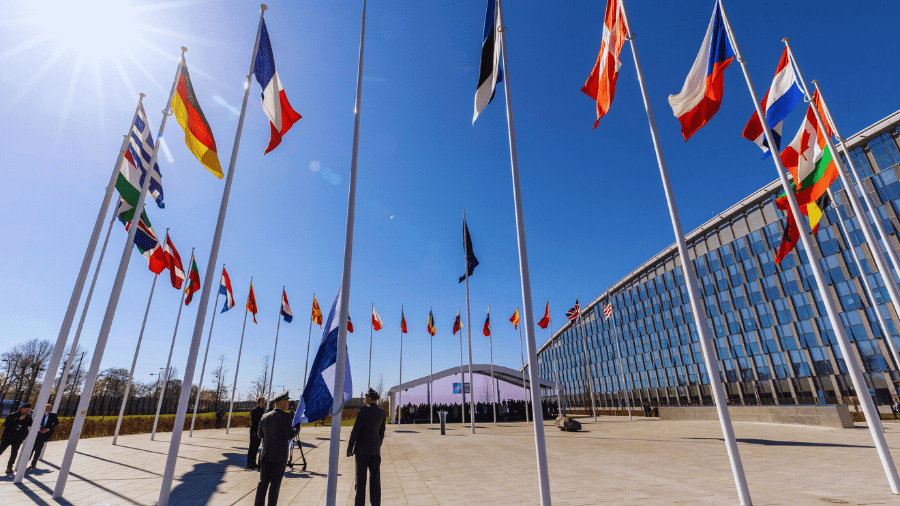This article originally appeared in the National Post.
By Alexander Dalziel, June 23, 2023
At the Nordic Prime Ministers’ Meeting in Iceland this weekend, Prime Minister Justin Trudeau will meet the leaders of Iceland, Norway, Denmark, Sweden and Finland, along with the heads of Greenland and the Faroe Islands as well as Finland’s Åland Islands.
In an uncertain world, fostering closer ties with the Nordics makes good sense. The Prime Minister’s Office observes we are like-minded on many fronts. We agree on the seriousness of climate change, and see the need for reconciliation with Indigenous peoples. The Nordics share Canada’s view on the importance of a predictable world order governed by rules and institutions (not the whims of power) as reflected in their support for the United Nations, World Trade Organization and now NATO. Canada and the Nordics recognize the essential role of the U.S. in our defence and the global order.
The differences, however, are what is worth the most attention.
Take defence spending. The Nordics are rapidly nearing NATO’s baseline of allocating two per cent of GDP to defence. Finland was already close when it joined NATO in April. Norway plans to get there by 2026. As recently as 2021, Denmark spent the same as Canada on defence (1.3 per cent), but has since committed to reaching the two per cent threshold by 2030, tripling defence spending in the next decade. Sweden spent less than Canada did in 2021; now it is slated to reach two per cent as soon as 2026. Canada must follow suit. (Iceland does not have a military.)
The Nordics also invest more in defence capability. For instance, Denmark and Norway in 2022 each spent over 10 per cent more than Canada on major equipment and research and development (Canada spent more on personnel, operations and maintenance).
While the Nordics’ geographic location near Russia drives these investments, Russia’s proximity to Canada across the Arctic Ocean is insufficiently integrated into our geo-strategy. The Nordics have a comprehensive long-term picture of the Russian threat to their homelands — not just militarily, but also to civilian, informational and electoral infrastructure. Talking to the Nordics to better understand a belligerent Russia is a must.
Hopefully Trudeau’s pre-trip briefing book contains the many publicly available strategic foreign policy, defence and intelligence documents the Nordics have formulated in recent years. Nordic governments have strategic cultures that engage the public on foreign policy. Canada is catching up on that front with last year’s Indo-Pacific strategy and the upcoming defence policy update, but we are still missing a comprehensive foreign and security strategy. Canada’s last such document was issued in 2005.
Successive Canadian governments have acted as if foreign policy is something they only need to tell Canadians and the world about on an ad-hoc basis. Undertaking such an exercise now would concentrate official minds on matters of the day in a comprehensive fashion, thereby sharpening a sense of Canada’s objectives and capabilities abroad. It would give the Canadian public a reference point for the national debate, and a means for holding the government accountable for its foreign policy actions (or lack thereof). The Nordic example is an excellent guide.
Finally, Norway exhibits geopolitically savvy energy strategy. Its strategic documents are replete with references to developing their oil and gas sectors sustainably, alongside the push for greener fuels. This is embedded in policies to manage the green transition and develop better technologies to deal with environmental accidents such as oil spills.
Canada should coordinate with Norway to become known world leaders in sustainable energy production, jointly promoting the reliable, ethical, clean(er) options we can offer. This would include oil and gas. Research from the Macdonald-Laurier Institute shows that Canadian and Norwegian oil and gas production is among the globe’s cleanest. Even the International Energy Agency’s most optimistic scenarios for future world energy mix include oil and gas. If players with strong accountability records like Norway and Canada don’t take the lead, we will be ceding the market to environmentally irresponsible and unaccountable states like Russia and Venezuela.
To do so, however, Ottawa must be clear with Canadians about the fact that oil and gas are not going away for a long time. A national strategy on the green transition, Canada’s energy assets and the roles of Canada’s different regions would make for a more stable, healthier world — and a more effective Canada.
That would indeed be a Canada-Nordic like-mindedness with a difference.
Alexander Dalziel is a senior fellow of the Macdonald-Laurier Institute.






